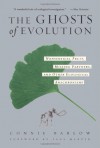Currently reading
Cristofori's Dream
Your Inner Fish: A Journey Into The 3.5 Billion Year History Of The Human Body
The Enchanted Wood
The Sparrow
The Ghosts Of Evolution Nonsensical Fruit, Missing Partners, And Other Ecological Anachronisms
The End of Eternity
 This is somehow my first Asimov book. At first, I was underwhelmed. However, as the book went forward, I found that there was much more depth to the writing than originally met the eye and that the shallow characters were shallow with a purpose.
This is somehow my first Asimov book. At first, I was underwhelmed. However, as the book went forward, I found that there was much more depth to the writing than originally met the eye and that the shallow characters were shallow with a purpose. Asimov sets up a group of scientist who are outside of time called the Eternals. While everyone on earth thinks that their main job is to facilitate commerce between various centuries, their true function is to manipulate history to make it play out more favorably. Thus, the Eternals have become gods without the people of the world knowing it. They've become puppeteers to a population that doesn't know to fight back, thus leaving the Eternals seemingly untouchable. It makes for an interesting polytheocracy where the people aren't even aware that their scientist have turned themselves into gods.
It seems that only the brightest, most analytical, most unquestioning, most inexperienced in life, and most naive need apply for the job of Eternal. Recruiters would need to find someone who lived their entire life with those qualities to hopefully ensure that they'd not eventually change into someone who would call for a revolution in Eternity because they could no longer agree with the level of control and puppetmastery that the Eternals wield. With such a combination of personality traits, Our Hero falls in love with the first scantily clad woman that throws herself his way. And, in so doing, he puts the very existence of Eternity in peril because he's willing to do whatever it takes to keep her. And upon this small rebellion, our story turns.
An interesting mystery is that the Eternals are shielded from being able to visit the future beyond a certain point. Apparently, future humans don't want the daliance of the Eternals in their affairs. Asimov makes the point that species evolve to adapt to their environment. However, since humans are able to adapt their environments to suit them, he postulates that humans have and will continue to evolve at much slower rates than beings that are unable to modify their environments. So we guess that future humans aren't that much different genetically from present-day humans. One wonders. My next read is Hominids (a book I've been wanting for ages which I received as a birthday gift) which imagines a parallel universe where Neanderthals did not die out or intermix with homo sapiens and eventually became more technologically advanced than we have during the same time period. I have a strong intrigue concerning the what-ifs of our evolutionary might-have-beens or our evolutionary future. I think fiction like this appeals to me simply because I only have one life to live and will never see our evolutionary future thousands or millions of years from now beyond an author's imagination. I'd love to see a far distant future as imagined by Asimov.
I'll certainly read Asimov again. The content of the story was merely okay, but the questions that he created for me while I was reading have left me wanting more.







